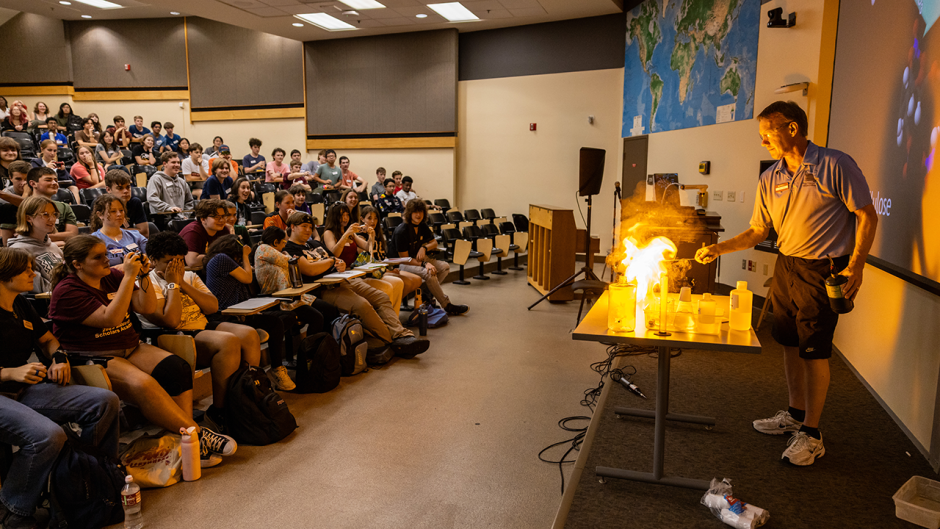Dec. 13, 2022
Contact: Eric Stann, 573-882-3346, StannE@missouri.edu
University of Missouri researchers were awarded a four-year, $2.1 million grant from the National Institutes of Health (NIH) to establish a Learning Disabilities Innovation Hub to better understand how both the classroom and in-home environments can influence a child’s risk for developing long-term difficulties with math.
The current project follows a six-year project that found a link between a preschooler’s early number knowledge and school readiness in math skills, said David Geary, Curators’ Distinguished Professor of Psychological Sciences in the MU College of Arts and Science.
“Our earlier findings identified critical skills for math readiness — how to understand quantities associated with number words and how to count — and suggested children who aren’t picking up this early knowledge in the first year of preschool are starting about one grade level behind in mathematics at the beginning of first grade,” Geary said. “And if they are already starting behind, it means they’re likely to stay behind throughout their schooling. The age of acquiring this knowledge makes a difference, because later learning does not occur without it. This finding influenced us to design the current project to better understand why this variation is occurring.”
The current project focuses on identifying various factors — both at-home and in-classroom — which can influence a child’s early learning of math skills. To do this, researchers will test preschoolers’ math skills seven times over two years of preschool, including cognitive abilities like memory.
During that same time period, researchers will receive four reports from teachers on the attentiveness of each child in the classroom. They will also conduct four direct classroom observations. In addition to the classroom components, researchers will conduct three in-home assessments for each preschooler over the two-year period to determine the influence of parents or guardians on a child’s readiness for learning math.
“The in-home assessments will measure parents’ knowledge of math and reading skills, so we’ll have an idea of the knowledge that the parents bring into their interactions with their kids in the home,” Geary said. “In addition, we’ll record the kids and parents interacting during a birthday party both years because that type of interaction tends to produce number talk. Then, we’ll analyze the videos to see how those interactions are influencing a child’s development during their two years of preschool.”
Geary hopes to recruit a total of 150 children and their families to participate in the project. Participants will be recruited from the Title 1 preschool program of Columbia Public Schools in Columbia, Missouri.
“By identifying the core predictors of knowledge, acquisition and progression, we’ll be in a good position to develop targeted interventions, including aspects of home, school and individual or personalized components,” Geary said.
Joining Geary as co-investigators on this project are Sara Gable, the director of the Institute of Public Policy in the Truman School of Government and Public Affairs; Jessica Rodrigues, an assistant professor of special education at MU; and Jordan Booker, an assistant professor of psychological sciences at MU.
Geary said Gable originally joined the project because they share similar interests on this subject. Gable has done previous studies on interventions for early math skills, and she can also help frame the results for policymakers. Rodrigues has expertise in math learning and interventions, and Geary said she will be a good resource for the team when they start thinking about what interventions might look like after gathering data. Booker is an expert on parent-child interactions and relationships, and he will be assisting with analyzing the videos of the interactions between parents and their children during the birthday parties, specifically focusing on the use of number talk.
The grant, “Multisystemic approach to early math development and math learning disability,” was awarded by the NIH Eunice Kennedy Shriver National Institute of Child Health & Human Development (1P20HD109951- 01).


![062625_CEI Aerial View_email-cropped[29] (1)](https://showme.missouri.edu/wp-content/uploads/2025/06/062625_CEI-Aerial-View_email-cropped29-1-940x529.jpg)


